AGRICULTURAL & HORTICULTURAL SERVICES
Drones are ideal for spraying and spreading a wide variety of products, including all liquids and granular products like fertilizer to cover crops, fruit seeds and even larger seeds for trees, such as acorns and hazelnut.
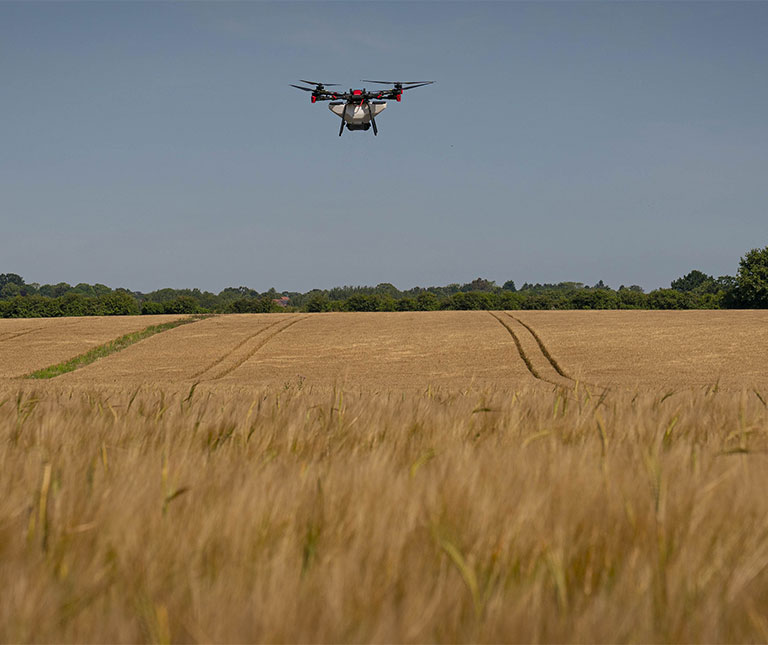
WHAT TYPE OF PRODUCTS RESPOND WELL TO DRONE APPLICATIONS?
All areas of Horticulture and Agriculture, including farms, commercial, vineyards, fruit farms, forested areas to name a few. Most of what you are already using can be spread and distributed by drones, including:
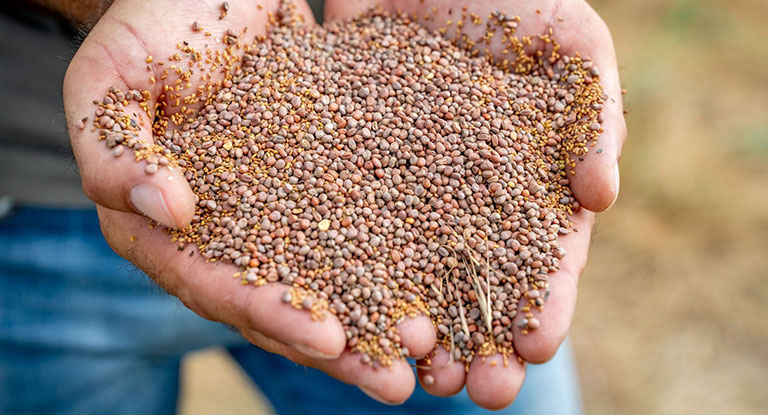
- COVER CROPS & COMPANION CROPS
- AGRICULTURAL FERTILISERS - GRANULAR & LIQUID
- HORTICULTURAL FERTILISERS - GRANULAR & LIQUID
- POLLINATION SPREADING
- BIO-LOGICALS
- WILD FLOWERS
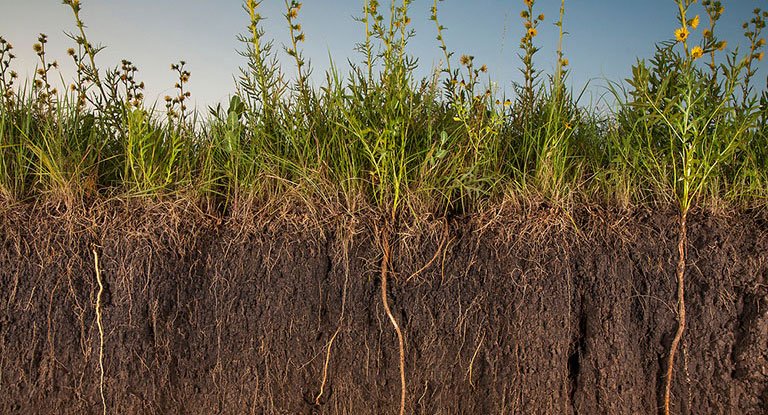
- GRASS SEEDING (INC GRAZING)
- TREE SEEDING (OAK, HAZEL, WILLOW….)
- OTHER NUTRIENTS & FEED
- LIME PELLETS
- PGR’s
- NEMATODES
BENEFITS OF DRONES FOR HORTICULTURE AND AGRICULTURE
Drones are transforming the Agri and Hort industries by providing an efficient, fast, and environmentally friendly solution for spreading and spraying. This technology significantly reduces farming’s carbon footprint while enhancing precision and effectiveness.
The downforce and swirl generated by drone propellers ensure comprehensive coverage of crops and soil. This includes hard-to-reach areas, such as the undersides of vegetables and fruit crops, where traditional methods often fall short.
Additionally, cover cropping between trees and crops has become increasingly popular due to its nutritional benefits. Many farmers are now adopting these SFI-funded crops to improve soil health and sustainability.
SFI PAYMENTS FOR THE HORTICULTURE & AGRICULTURE SECTORS
CURRENTLY PAUSED - The Sustainable Farming Incentive (SFI) provides payments to farmers and landowners for practices that improve soil health, biodiversity, and water quality. As well as receiving financial payments, it also improves the soil quality and ultimately the quality and quantity of yield.
ONCE SFI PAYMENTS ARE REINSTATED SDS WILL PUBLISH THE LATEST INFORMATION, WHAT IS AVAILABLE AND HOW SDS CAN HELP YOU MAXIMISE THESE PAYMENTS
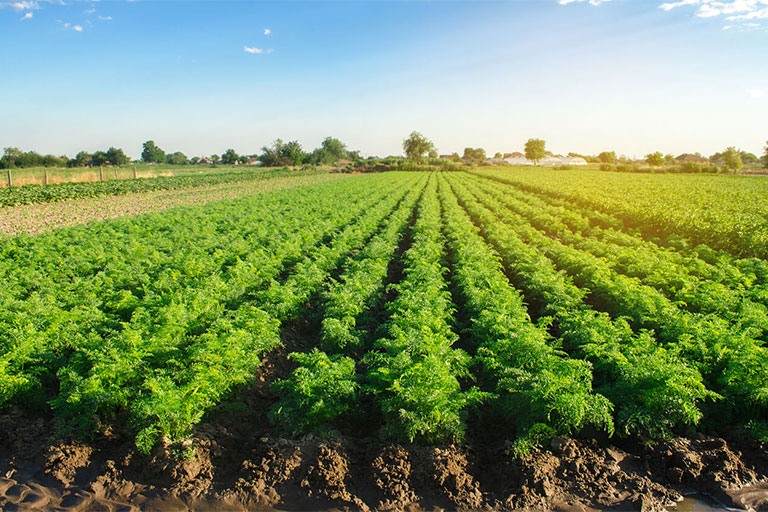
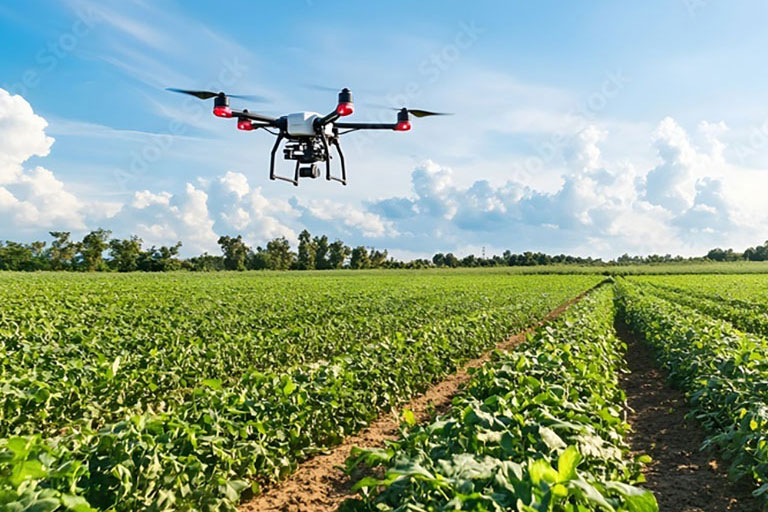
REGENERATION FARMING - SOIL HEALTH
Drones are an ideal solution for regenerative farming. They eliminate soil compaction, tramlines (maximising growing areas), and soil disturbance while providing a highly even and fully adjustable application tailored to each field’s needs.
Additionally, drones can operate 24/7, including in the rain, accessing fields when traditional vehicles cannot; without the risk of getting bogged down or stuck – wasting time and resources.
RAPID RESPONSE – EARLY PLANTING BEFORE HARVEST
Farming is constantly influenced by weather conditions, both good and bad. The ability to quickly adapt to changing weather can significantly impact harvest yields and therefore revenue and profit margins.
Drones offer a rapid, efficient solution, enabling large-scale tasks to be completed at short notice, even when traditional equipment still can’t access the fields.
Planting cover crops two to three weeks before harvest maximizes their growth potential, enhances nutrient production, strengthens root structures, and improves overall effectiveness. This is especially crucial when weather delays harvesting, providing peace of mind knowing the cover crops are already established.
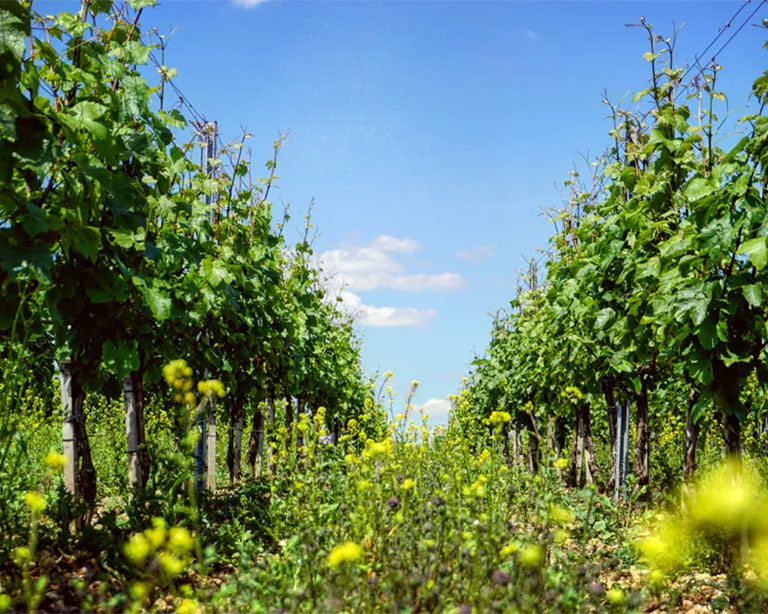
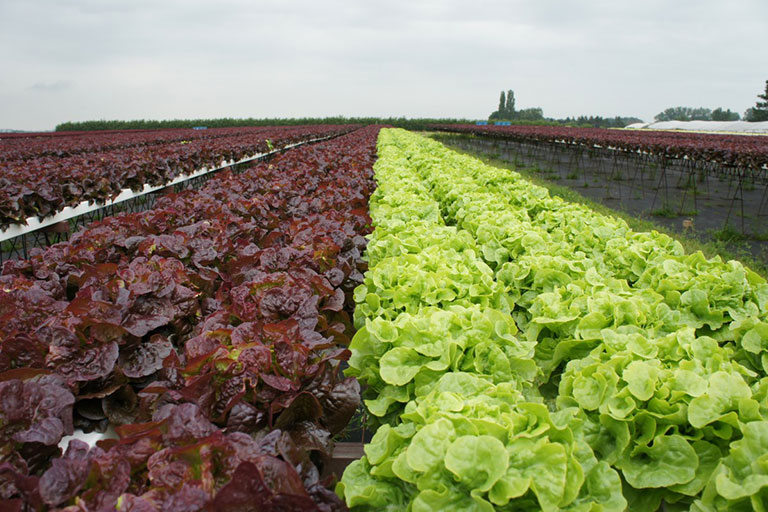
ZERO FUEL COSTS
All fuel costs are covered by SDS. As an example, a tractor for cover crops uses around 17 litres of diesel per Ha, making a saving of £23 to £25/Ha
UNFARMED, UNUSED OR SCRUB LAND
Unused or unfarmed land can still qualify for Sustainable Farming Incentive (SFI) funding. By utilising drone technology, these areas can be efficiently accessed and seeded, transforming them into productive spaces that generate additional revenue.
REDUCE USE OF PRODUCT VIA EFFICIENT & PRECISION COVERAGE
Our drones can cover a hectare in just 5 to 7 minutes, ensuring tasks are completed quickly and efficiently. With precision mapping to the edge of the field, they deliver uniform application, improving crop yields and maximizing land use and returns.
Unaffected by terrain or field conditions, they provide seamless access while optimizing product usage—minimising waste and maximising your return on investment.
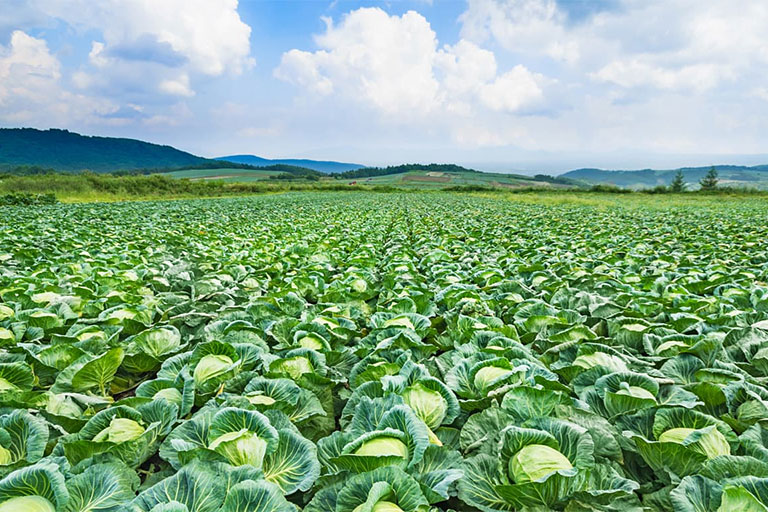
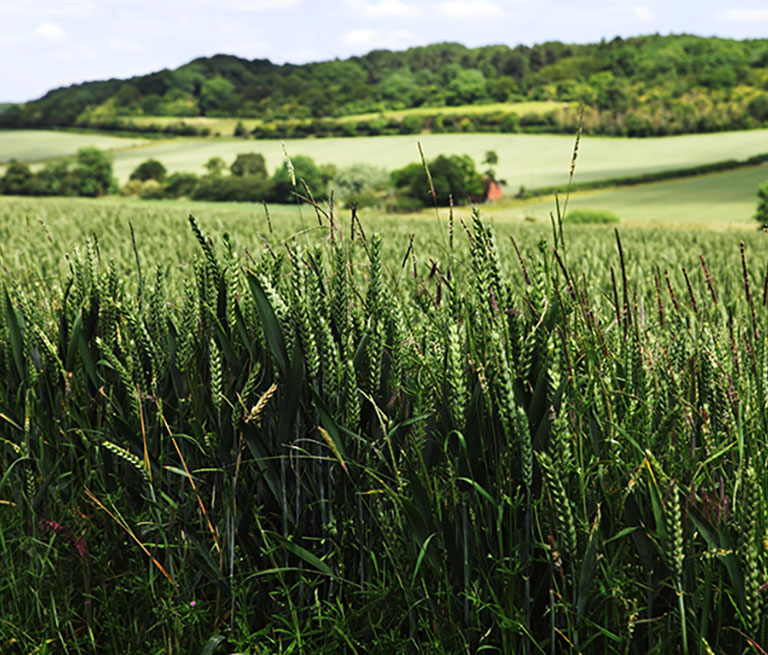
ENVIRONMENTAL BENEFITS
Drones can cover approximately one hectare in just 5-7 minutes, offering a highly efficient solution for seeding and land management. Compared to traditional tractors, drone battery recharging produces at least 90% less CO₂, significantly reducing environmental impact.
CLOSELY PLANTED CROPS – NO TRAMLINES / FIELD ACCESS
In densely packed fields of cabbages, carrots, and other vegetables, vehicles cannot access the crops to deliver essential nutrients or protection products like slug pellets, leading to potential losses.
Flying above the field provides the most efficient and precise method for evenly distributing the necessary products, ensuring optimal crop health and yield.
GRASS SEEDING FOR MEADOWS & GRAZING
Drone applied grass seed and fertilisers are ideal for establishing and maintaining high-quality grass pastures and meadows for grazing livestock.
Our seeding and maintenance programs, combined with targeted fertilisation, help produce top-quality meadows on any terrain; which other vehicles may find it difficult or efficiently to cover.
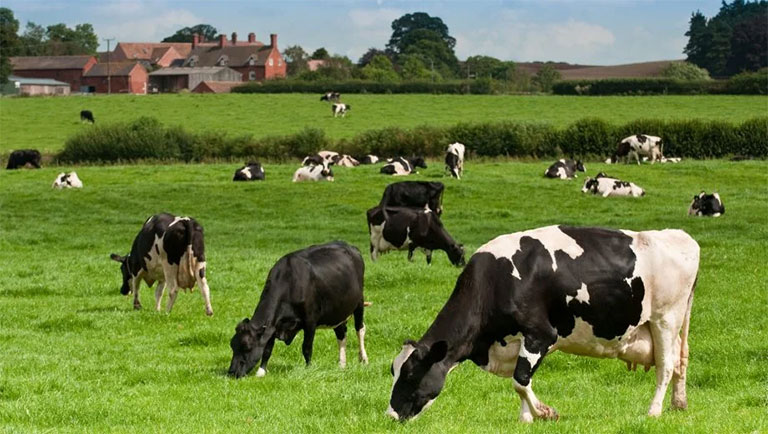
CUSTOMER FEEDBACK
"I thought that in our context as a regenerative farm, it just ticks all the boxes; with the drone causing no soil disturbance, no soil compaction, no negative impact on the land, and critically having that living root in the ground all the time."
Jeremy Buxton
Eves Hill Farm in Norfolk - When asked why he decided to contract in a drone, Mr Buxton explained"Even before we terminate the barley crop, there will already be a cover crop in the ground and rooting, so in terms of soil biology and soil structure, it’s definitely doing the world of good."
Lucas Oliver
Oakley Farms in Leeds – Getting ahead of time with Cover Crops
"Using new agricultural technology to produce a field of Net Zero root crops…...using low carbon fertilisers, biological controls and autonomous farm vehicles and drones."
Stuart Machin
M&S CEO, Thought in Farming TechnologyWHAT CUSTOMERS SAY ABOUT US
Stuart Machin, M&S CEO, Thought in Farming Technology

